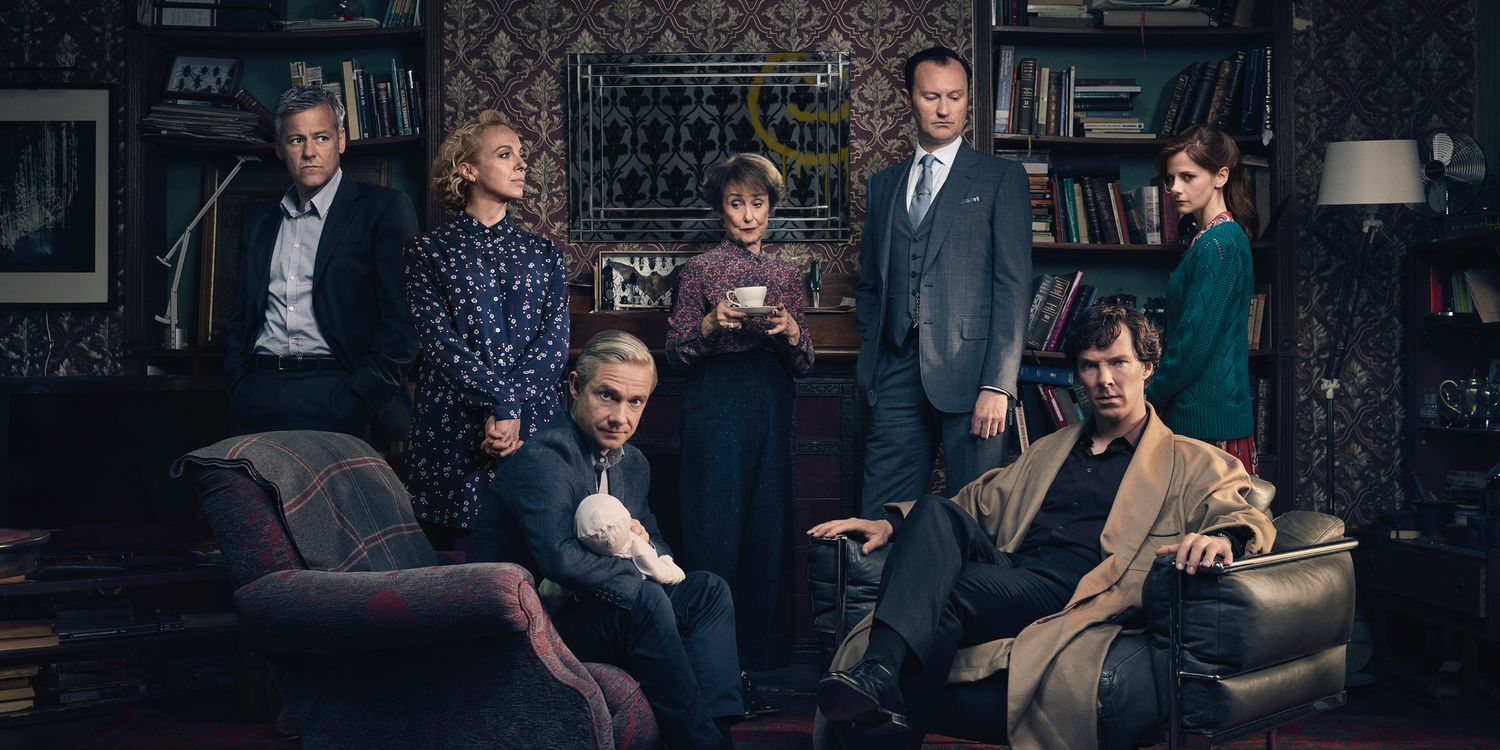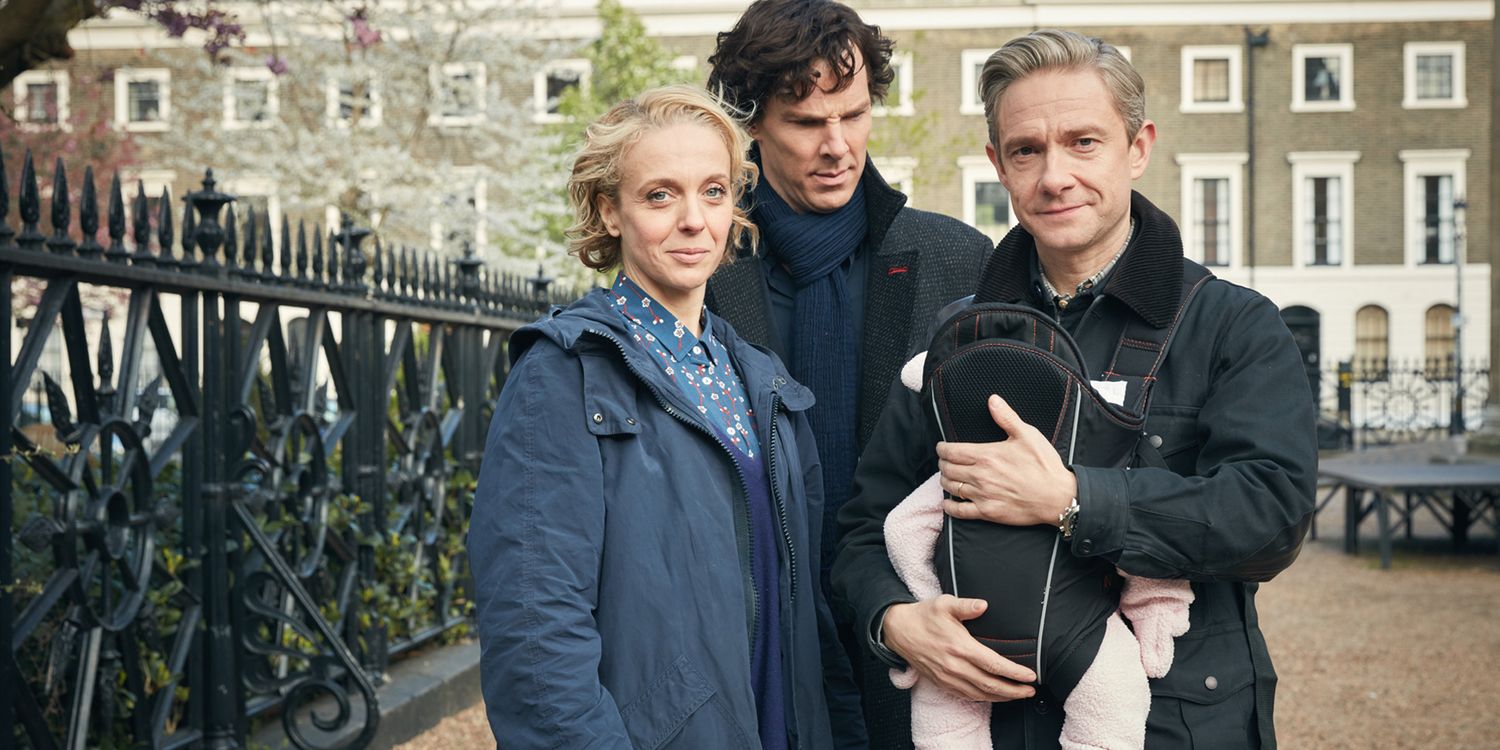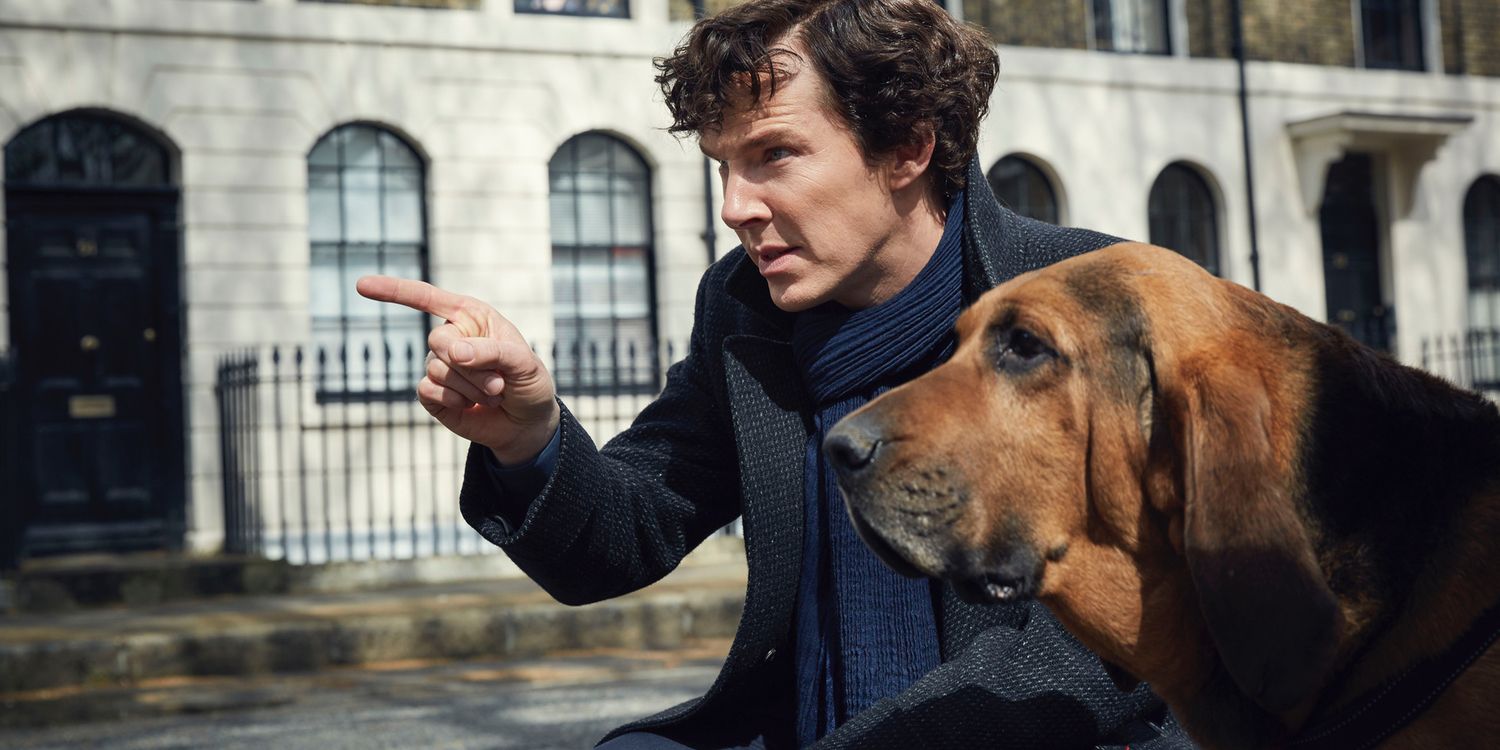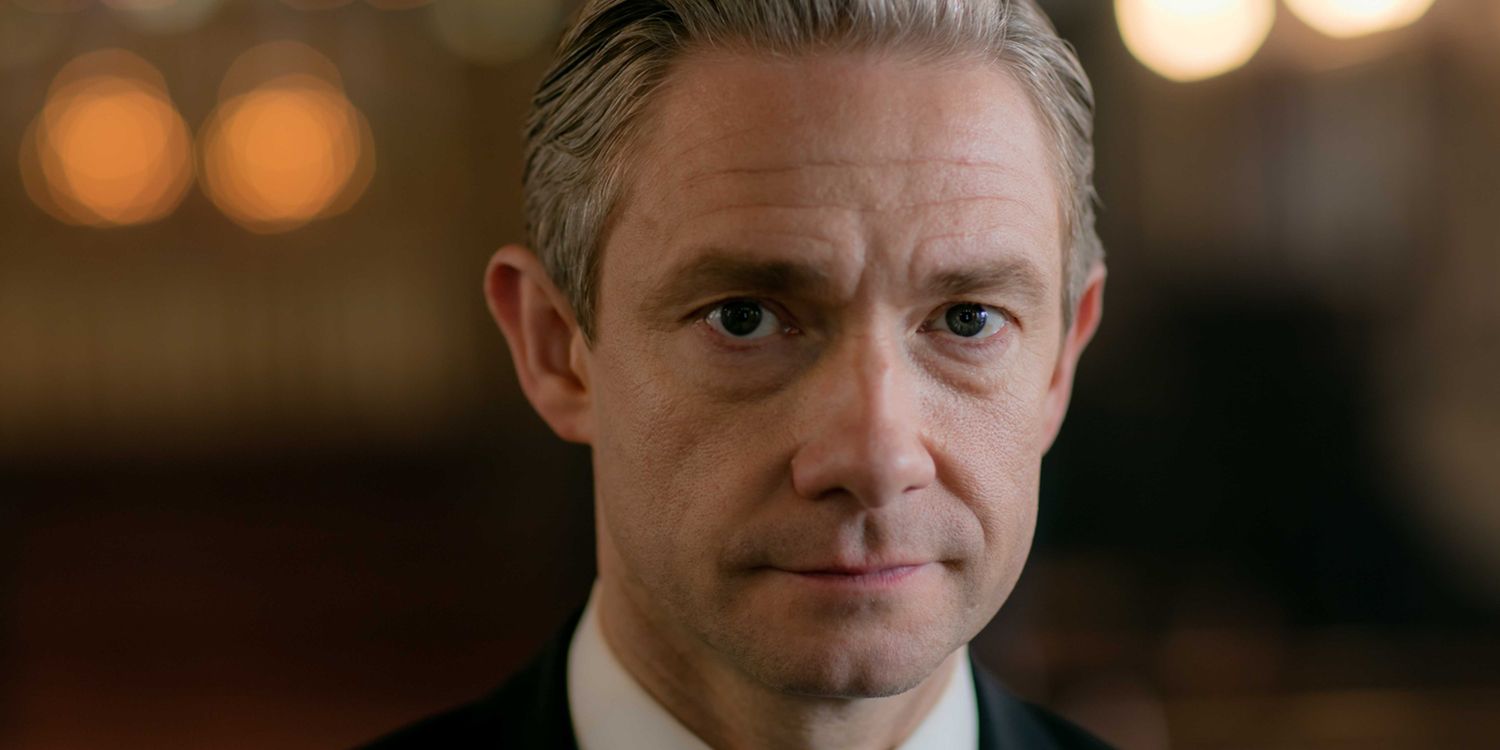Because its appearances are relatively intermittent, a new season of Sherlock comes with the baggage of high expectations. It's not unlike when a major installment in a movie franchise – or ever-expanding cinematic universe – arrives in theaters. The assumption is that this new piece being offered will similarly operate in the realm of spectacle – both in terms of the overarching plot and in the lives of the characters caught up in whatever machinations happen to be the driving force at the time. In that sense, new episodes of Sherlock are often caught in a weird liminal state between aspiring blockbuster and television serial. And the results can swing dramatically either way.
Unlike Elementary, Sherlock doesn't have the luxury of time in the sense that, like most broadcast shows, Elementary enjoys 22 episodes a season with Sherlock and Joan. That's a lot of time to allow for an adequate examination of subtleties and nuances in the work of bringing such familiar characters to life. Where Sherlock wins is in the length of its episodes, which allow for a much larger arc, opening the door of possibility in terms of the aforementioned (and expected) sense of spectacle that makes the return of Benedict Cumberbatch and Martin Freeman feel more like an event than anything else.
Nevertheless, after three seasons and an off-kilter special last year, the return of Sherlock feels weighty this time around. Perhaps that’s because of the increased profile of its two leads, both of whom have signed on with the mighty Marvel empire. Though their commitments likely vary wildly between them, Cumberbatch and Freeman are now part of a much larger pop-cultural monolith, one that has a tendency to overshadow an actor's accomplishments that came before it, and marginalize everything afterward. In this case, it can be hard to see Benedict Cumberbatch, having returned to play Sherlock Holmes, and not think Doctor Strange is moonlighting as a British consulting detective. And to a certain degree, the expectations become greater, as Cumberbatch, through no fault of his own, is now embroiled in an inevitable competition with himself – or at least his on-screen alter egos are.
Thankfully, in 'The Six Thatchers', Cumberbatch demonstrates the appealing breadth of an ego he's been associated with for much longer. At the start of season 4, it's clear that he and Freeman have been playing this game for quite some time. And while the series' episode list is paltry compared to some, the extent to which both actors have embodied their respective roles and fashioned them into something inextricable from the performers themselves is made even more obvious. While the two appeared last year at this time in 'The Abominable Bride', it's been three years since we had a proper season of Sherlock. And yet, despite the obvious passage of time there's nothing in the series to suggest any time has passed at all.
And that's part of the problem with the season 4 premiere. 'The Six Thatchers' starts off almost immediately following the events of the season 3 finale, 'His Last Vow', in which Sherlock shot Charles Magnussen (Lars Mikkelsen). That was quite the cliffhanger, as long as you remembered it – or re-watched the series in anticipation for season 4 – but the episode's efforts to recapture the urgency of the moment fall short. The importance of all that transpired three years ago feels… well, like it happened three years ago. And to certain degree, the episode knows it, too. It's made evident in the introduction of a deus ex machina to save Sherlock's bacon that also acts as the introduction for the real culprit of the "real mystery" in 'The Six Thatchers'.
The series is really done with all that Charles Magnussen stuff because now it has something new to play with, like the fact that Mary is a pregnant super-spy and Moriarty may still be alive – or as Sherlock believes, he orchestrated some plan for vengeance to be carried out in the event of his death. Either way, it's clear Sherlock is so eager to wrap up another lingering mystery that it's willing to let Benedict Cumberbatch hoot and holler and eat cookies in order to segue out of a cliffhanger it has no more use for.
There's something entertaining in the protagonist being the manic mouthpiece of the series, especially when it seems to be the creators speaking about their disinterest in cleaning up old storylines, but the episode eventually loses that train of thought, too, as it stops for a second to hit the reset button. The second half of the premiere, then, is comprised mostly of Sherlock quickly solving a series of cases, having a bit of fun while he can, since he's convinced that Moriarty is due to strike back at any minute. To a certain degree, the threat of Moriarty beating death or somehow guessing Sherlock's next moves so far in advance becomes a solid gag by the end of the episode. But at the same time, it feels a little like the audience has been sold a bill of goods, and that all the worry about Sherlock's nemesis was just the show's way of deflecting from the fact that it was going spend the premiere solving a mystery that was arguably more ludicrous than the idea of Moriarty still being alive.
That is, of course, the mystery of who Mary Morstan really is. And in order to find out, the episode puts her in the middle of revenge plot by one of her former associates, who thinks she betrayed their team. As it turns out, the individual behind the betrayal of Mary's team is the unlikeliest suspect: a woman introduced during Sherlock's manic episode at the beginning, who, at the time, seemed to be unwittingly a part of the show's love for its titular character's spectacular rudeness, especially in the face of authority. And again, that love returns as Sherlock's behavior results in the suspect shooting at him, which, of course, results in Mary jumping in to save his life.
The twist ending of Mary's death and John embarking on a tacit affair – in an episode that also saw her give birth to her and John's daughter – is ultimately rendered hollow, as it smacks of the same kind of housecleaning as the hasty resolution of Magnussen's death. This time, though, Sherlock had the decency to send Amanda Abbington off with a little more style and sense of significance. Even then, once it's made clear by her posthumous video message that Sherlock is supposed to "save John Watson," it becomes difficult to appreciate that significance as pertaining to Mary and not John. What's worse is that the friendly tone of Mary's video further assuages any sense of guilt Sherlock might have been feeling regarding the role he played in the death of his only friend's wife.
That leaves two episodes for Sherlock to reclaim the relationship at its core and to establish a much larger narrative than the one set around Mary's secret history. 'The Six Thatchers' was really just a bit of narrative housecleaning, an attempt to sacrifice a major character to bring some tension back to Sherlock and John's connection. Hopefully, Mark Gatiss and Steven Moffat have something grander in store for their two heroes. And at the same time, hopefully they find a way to validate Mary's death beyond the strain it puts on Sherlock and John's relationship.
-
Sherlock continues next Sunday with 'The Lying Detective' @9pm on PBS.
Photos: PBS/Masterpiece




